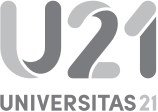Congratulations on progressing towards, or achieving completion of your higher degree by research!
The question or opportunity now is, how to build on your research achievements and progress Your Career? Perhaps consider the words of Abraham Lincoln, “the best way to predict the future is to create it”.

These pages provide insights and resources to help you consider and plan for the next steps in Your Career. Here are a few questions to get you started.
What is a Career?
A career builds on previous experiences including education, roles and other interests. It can and likely will take many paths and comprise one or a number of occupations / roles. Ultimately a career is about our aspirations, the choices we make, the many steps taken. As a result, it’s a path unique to each of us.
What is the basis for a Career in Academia?
An academic career builds on your higher degree by research performance. Traditionally academic performance is measured in three areas; Scholarly Research, Teaching and Service. At UNSW the performance areas are Research, Education, Leadership and Engagement, though this may be different at other Universities.
Find out more about UNSW’s Academic Career Development and Academic Promotion.
Careers and Employment can assist you with feedback on your academic job application documents and practicing for interviews.
What are the alternatives to a career in Academia?
There are alternatives to an academic career to consider. These include working in industry, policy, government, start-up, higher education operations, to name a few.
Read more here:
- Extend Career Planning Tools & Resources (UNSW Sydney)
- There is life after academia (Nature Journal)
- Non-academic Careers for PhD holders (Find A PhD)
- Alternative Careers that PhD Graduates should Explore (Enago Academy)
- The Many Paths Post-PhD: Preparing for Non-Academic Careers during a PhD (Immpress Magazine)
- Considering Careers Outside Academia? (University of Toronto)
- The Thesis Whisperer (online blog)
- Job Outlook, information on the Australian labour market (Australian Government)
You can also book an appointment with a Careers and Employment Consultant to discuss alternatives to a career in academia.
Why have a Career Plan?
Careers can and do happen by accident, though they are more likely the reward of talent, hard work, a bit of luck and some considered planning. Planning for your future is a practical strategy and a means to determine the progress made. A plan is a not a one stop solution and requires ongoing effort, review and updating.
Where are you now?
Before you can work out what the next steps in your career might be, you need to consider where you are right now, or where you will be after you complete your HDR program.
What can you do now to self-assess your current skill set and identify any career gaps?
- Use the UNSW Career Planning Tools and Resources Self-Assessment Tool
- Assess your skills against the Transferable Skills Checklist
- Review your UNSW Higher Degree Research Graduate Attributes and Learning Outcomes
Where do you want to be?
What are your aspirations? What type of role are you aiming for? Would you like to continue in a role at UNSW Sydney, or work at another institution? Perhaps you are thinking about a role outside of higher education. Whatever the answer, the next step is to find out about the expectations of this role.
This would include doing your own research to familiarise yourself not just with the company or organisation, but the position description and any related probationary criteria. There are a number of great external and internal recruitment sites, such as Seek.com.au, CareerOne.com.au, Jobs@UNSW and UNSW Careers & Employment.
The steps you will need to take you from ‘Where am I now?’ to ‘Where do I want to be?’ are things such as:
- Use the UNSW Extend Your Career Framework to prioritise and access UNSW support, relevant to your current role or your aspirations.
- Creating a plan / setting out your goals on paper.
- Writing an application and cover letter.
- Refining your interview skills.
- Tips for applying for a role.
- Finding a mentor
How do you get there?
Now that you have determined where you are currently at in your career and identified some areas to focus on, its time to choose which stepping stones to take in order to achieve your aspirations set out above. It’s easy to get side-tracked when things change, and life inevitably throws you curveballs.
Remember to revisit the Extend Career Framework and Career Planning Tools and Resources, to re-assess your goals and aspirations as you progress throughout your career. Be proactive, do your own research online, network and find a mentor who can guide you and share their experiences.
What is career building support?
Support is essential in building a career, as it is a marathon rather than a sprint. There are many influencing factors which may need to be identified and juggled in order to achieve career progress. Support may also assist you to navigate the bumps and detours along the way.
Career support can be accessed depending on the situation:
Networks: There are the immediate networks of friends, family, supervisors and work colleagues. Expand your networks through professional affiliations, mentoring programs, networking events, internships, work experience programs, local community volunteering and recreational clubs. Consider online networks such as LinkedIn, ResearchGate, Twitter, and Facebook. Update your online profile, follow relevant organisations, join groups and reach out to alumni for additional support and advice.
Health and Wellbeing: The ability to thrive in your work and bounce back in the face of challenges is important to career progress. There are people and resources to assist you at UNSW:
Career Consultations: UNSW Careers and Employment can help you clarify your career goals and assist with navigating your career during and after your research. You can access online resources, career seminars as well as booking an individual appointment with a Careers Consultant for one on one assistance.
Transitioning from PhD to the workplace:
- There's work (and life) outside of universities for PhD graduates (The Conversation)
- More PhDs need to be channelled into industry (The Australian)
- UNSW Job application resources (CVs, resumes, selection criteria and interviews)
Your career is yours and is up to you to drive. Wishing you well, whichever path you choose.







